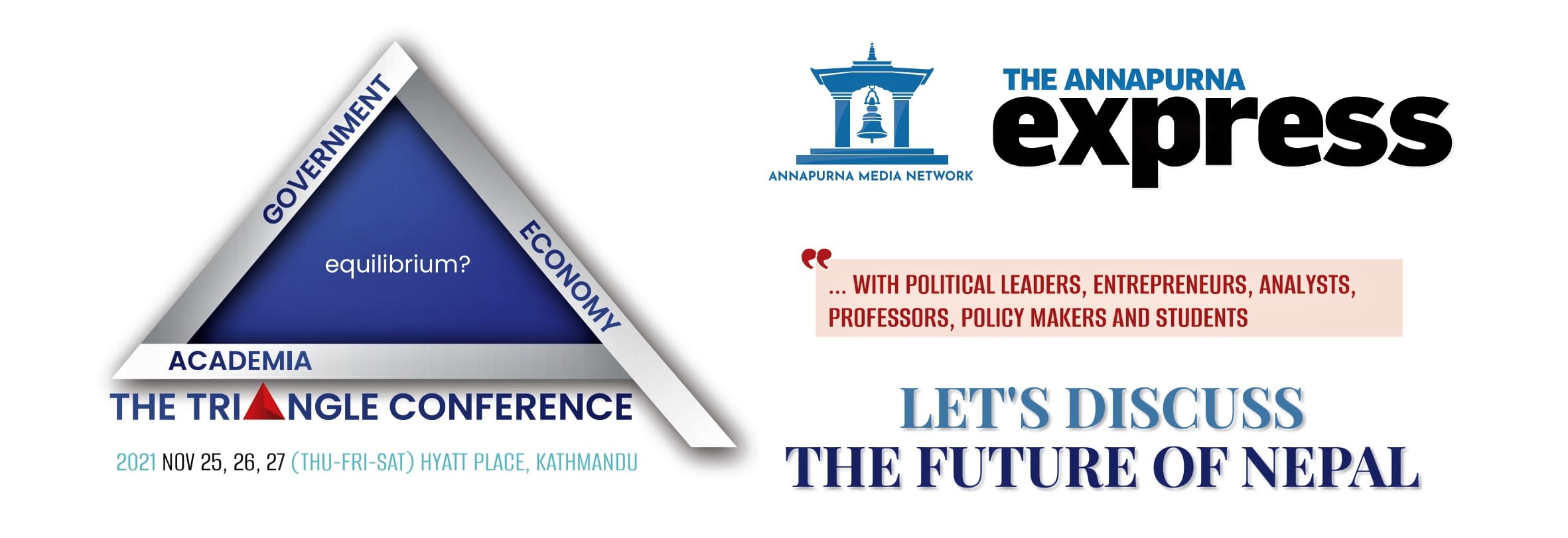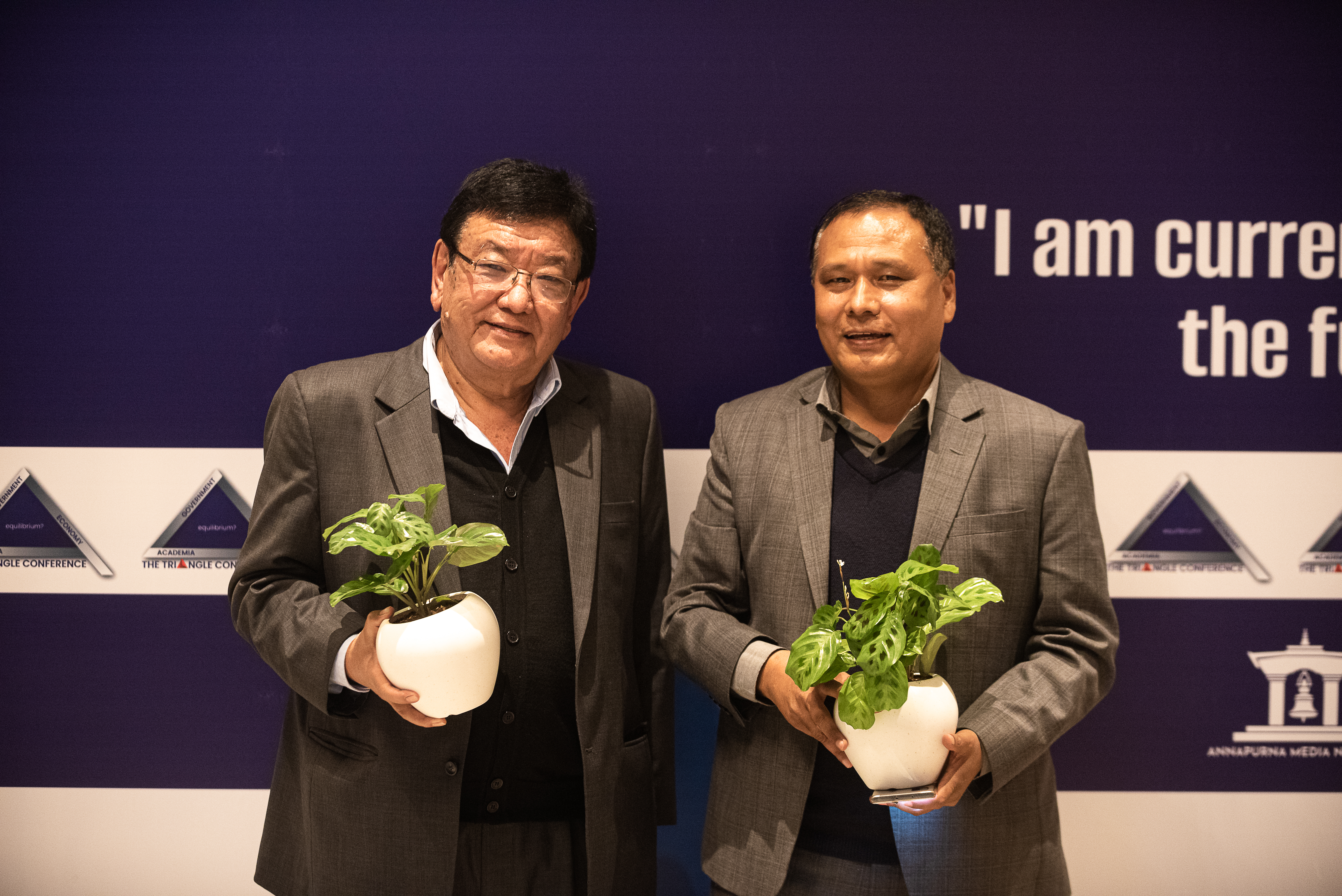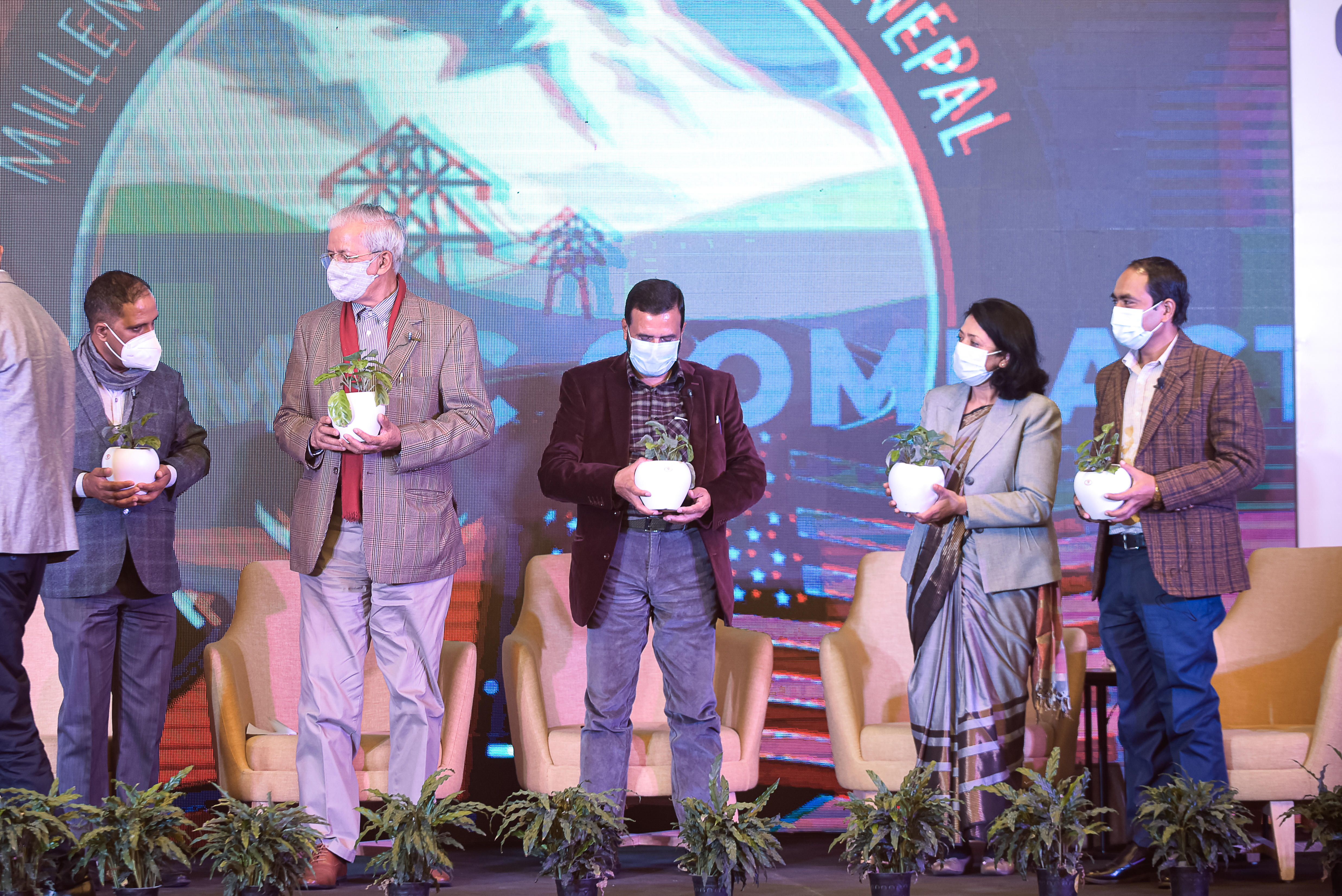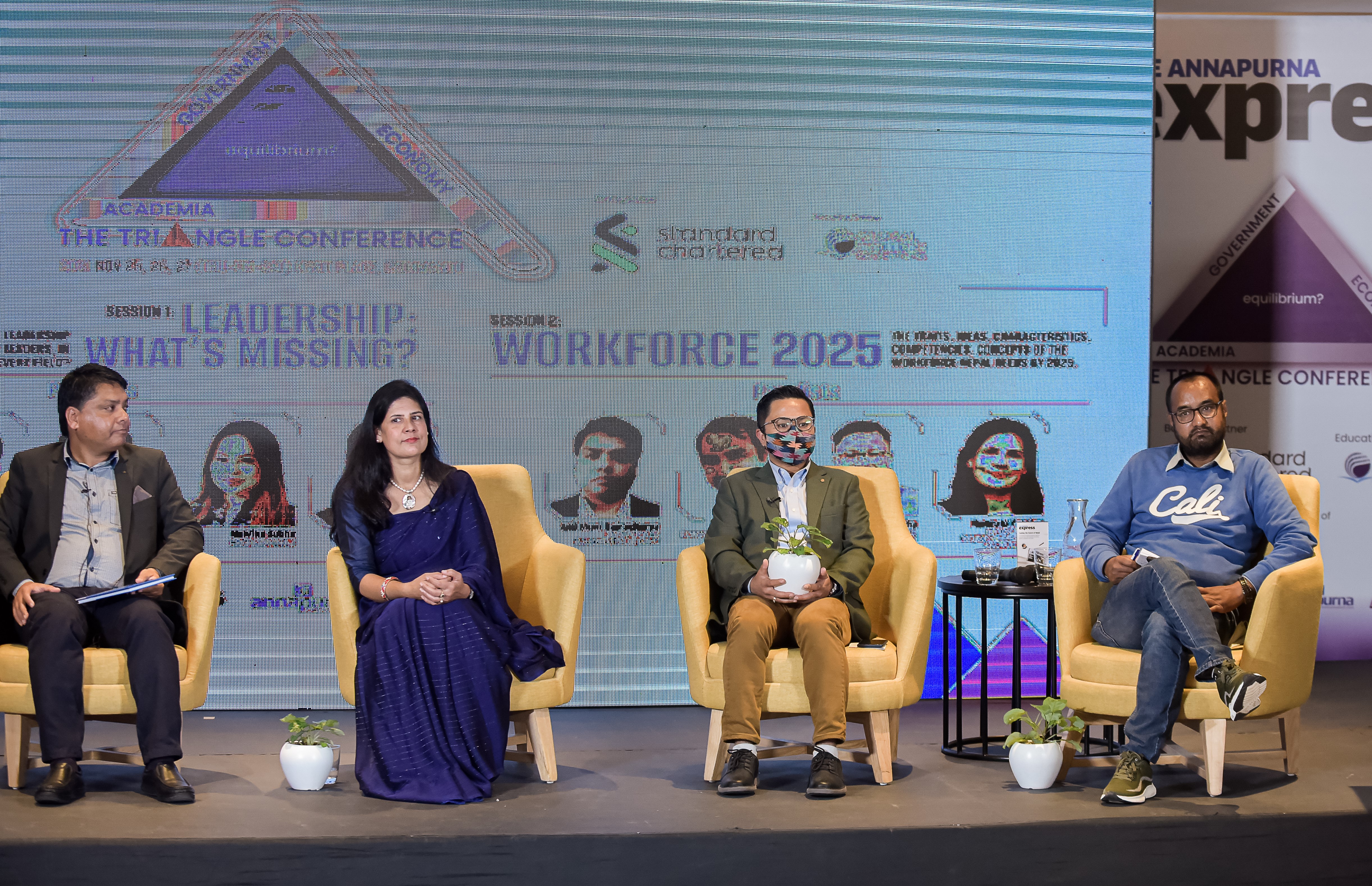The Triangle Conference, an initiative of The Annapurna Express, concluded on a positive note with stakeholders from the government, academia, and economy pledging to collaborate.
During the seven sessions spread over three days, politicians, bureaucrats, academics, private sector representatives, student leaders and other representatives from the three sectors also discussed the gaps in inter-sector communication, their future vision for Nepal, entrepreneurship, leadership, and policy issues.
“Hearing our role models talk about leadership and nation-building gives us immense motivation,” says journalist Sunita Karki, who attended the conference.

Day I
The first session on national capabilities and necessities had panelists discuss the situation of academia and its link with economic development. The session, moderated by Jagannath Lamichhane, saw the participation of Kewal Bhandari, Secretary, the National Planning Commission. “It is the job of the government to bring out policies to promote the private sector and we are doing that,” said Bhandari. Panelist Sunaina Ghimire Pandey, managing director of General Technology Pvt Ltd, asked the government to establish an exclusive university for the IT sector.
Saurav Karkee, an IT student who attended the conference, agreed with Pandey. “The present and future of the nation depend on IT, so policies must revolve around this sector.”
Also read: The Triangle Conference: Righting the government-academia-business mismatch
The second session discussed the post-pandemic mental health of youths and the workforce population. Panelists discussed how youths can develop a positive mentality and contribute to the national economy.Hosted by Shreeya Giri, founder of Happy Minds, guests in the session shared their pandemic-related experiences. Comedian Manoj Gajurel, who was infected with Covid-19, said it was his positive mental energy that helped him recover. Similarly, Dr Rishav Koirala, psychiatrist at Grande Hospital said, “We need to teach mental health wellness as a subject in school.” Gajurel further added, “Parents should be aware before making their children aware of mental health wellness.”

The last session of the first day was conducted by Chief Editor of AP1 HD television, Tikaram Yatri. It discussed the role of leadership in nation-building. Dr Sanduk Ruit, senior eye surgeon, said ‘integrity’ was the key thing he expects from his team. “Without a synergy between the team and the leader, development is not possible as the two complement each other,” Kulman Ghising, managing director of Nepal Electricity Authority, said, while agreeing with Ruit.
Day II
The second day started with a panel discussion on the gaps between the needs and expectations of the government, economy, and academia. The session was moderated by ApEx Editor-in-Chief Biswas Baral. During the session, Sohan Sha, a researcher at Martin Chautari accused Tribhuvan University of failing the system and the country. Kusum Shakya, another participant, said, “Political and economic revolution must go hand in hand.”
Bhim Prasad Subedi, chairman of the University Grants Commission, highlighted the need for political consensus to improve the education system.
Also read: The Triangle Conference: Let’s discuss the future of Nepal
“This session helped me a lot because it talked about the mess that our public universities are in,” says Parbati Dahal, a secondary-level teacher. “I learned that those who should be leading the country are instead taking it backwards.”
As elections are round the corner, ApEx also organized a session on political parties and electoral governance. ApEx Assistant Editor Kamal Dev Bhattarai moderated the panel discussion which had veteran journalist Yogesh Dhakal asking for the source of funds for CPN-UML’s Rs 15 million-general convention. Similarly, Neel Kantha Uprety, former chief election commissioner, said, “Political parties buy their way to power through elections.”

In the same session, Bimala Rai Poudel, a member of the National Assembly, defended lawmakers who won elections under the proportional system. She said, “Not all those elected through PR are corrupt and incompetent.”
Day III
The last day of the conference focused on leadership and the workforce.
The first session moderated by ApEx journalist Pratik Ghimire saw Anjana Bishankhe, member of parliament from CPN (Maoist Center), quote Mao’s definition of leadership. She said, “Leaders are those who are creative and farsighted but they also work with the public.” Devendra Pokharel, founder of Cocina Mitho Chha, asked leaders in all sectors to set examples. Similarly, Dr Tshering Lama of Idea Studio Nepal said, “There is a huge gulf between the confidence and competence in our leaders.”
Also read: AMN launches ‘Unity for Sustainability’ campaign
The second session, moderated by ApEx Assistant Editor Kamal Dev Bhattarai was named ‘Workforce 2025’. There, the panelists talked about the traits, ideas, characteristics, competencies, concepts of the workforce Nepal needs by 2025.
Dr Jeevan Baniya, a researcher in the same sector, said 84 percent of Nepali workforce are engaged in the informal economy. While Anil Muni Bajracharya said, “We lack demand-side education and also, vocational jobs are highly undervalued in Nepal.”

Pradyumna Raj Pandey, under-secretary at the Ministry of Agriculture and Livestock Development, said, “This kind of program will help all concerned parties to communicate with one another. I wish there would be more representation from the government sector in the days to come as they are the key to change.”












